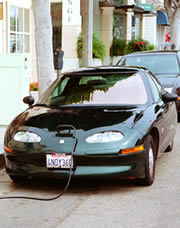"Green" batteries - cheap, environmentally friendly and with a very high cumulative capacity were developed by Prof. Doron Orbach from the Department of Chemistry, Bar-Ilan University
Avi Blizovsky

Direct link to this page: https://www.hayadan.org.il/nature_barilan.html
Global development of a new type of rechargeable batteries was developed in the laboratories of Bar-Ilan University, a rechargeable magnesium battery, environmentally friendly.
This discovery was published in the most prestigious journals in the world including: Nature, Advanced Materials, Journal of Chemical Record and leading journals in electrochemistry.
Since the XNUMXs attempts have been made by various researchers to develop rechargeable magnesium batteries without success.
Prof. Doron Orbach and his staff from the Chemistry Department at Bar-Ilan University succeeded after a research effort of several years to develop rechargeable magnesium batteries with unique performance. These include the ability to charge and discharge thousands of cycles, work in a broad temperature range (from 40C - to 100C) and environmental friendliness. The group at Bar-Ilan University invented liquid and solid electrolytic systems as well as cathodes for these batteries.
In collaboration with the "Ortel" company from Kibbutz Neve Or in the Beit Shan Valley, thin magnesium films were developed that are suitable for use in batteries and easy to create in bulk.
The financing for the development came from the Israeli investment company ATU
(Advanced Technology Upgrading).
The intention of the battery developers, who are currently in advanced engineering development stages, is to enter into cooperation in the coming months with companies that produce batteries and chemicals, with their goal being to bring the batteries to a commercial level within a year.
The important use of the developed magnesium technology is supposed to be in large batteries, for example, for the purpose of balancing production-consumption in power stations (load leveling), support in communication systems (back-up), uninterruptible power systems (UPS) and perhaps even for cars.
Prof. Auerbach explains the differences between magnesium batteries and other batteries on the market.
For example, lithium technologies allow obtaining extremely high energy density, but suffer from safety problems and a high price.
Continue on p. 2…
Batteries containing lead or cadmium are not environmentally friendly and are limited in terms of their energy density. Basically, all the batteries on the market have stability problems that require special solutions and limit the number of work cycles. The magnesium batteries do not have any side reactions (parasitic) between their components, so they can be discharged and charged thousands of times, which brings them to a huge cumulative capacity, higher than that of all other batteries on the market.
Batteries can be used with the same magnesium fuses that are used in the construction of car parts. Therefore, these are environmentally friendly batteries with important safety advantages.
It should be noted that this kind of development is important for the State of Israel, since magnesium is produced in the Dead Sea factories in an amount that constitutes 25-20% of the world's consumption. Using magnesium in rechargeable batteries will significantly increase its added value, therefore the magnesium battery industry will give an additional boost to the important magnesium production industry in the country.
So far, 3 patents have been registered related to the entire system, to various cathodes and solid rechargeable magnesium batteries. The patents have been approved in the USA and are in the process of being registered all over the world.
For news about Israeli development on the website of the journal Nature
https://www.hayadan.org.il/BuildaGate4/general2/data_card.php?Cat=~~~529357187~~~170&SiteName=hayadan
